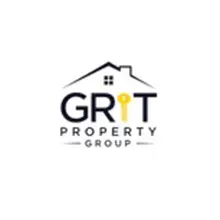Managing a rental property can be a rewarding investment, but it also comes with its share of challenges. Whether you’re a seasoned landlord or just starting out, understanding the key aspects of property management is crucial to running a successful and profitable rental business. Here are the essential elements every property owner should know about managing a property effectively.
1. Tenant Screening
The foundation of successful property management starts with finding the right tenants. Thorough tenant screening helps ensure that you rent to individuals who are financially stable, responsible, and likely to care for your property. Screening should include background checks, credit checks, income verification, and rental history reviews. Good tenants lead to fewer problems down the line, including fewer vacancies and reduced property damage.
2. Lease Agreements
A solid lease agreement is essential for protecting both you and your tenants. It should clearly outline the rental terms, including rent amount, due date, lease duration, security deposit, maintenance responsibilities, and rules on pets or subletting. Having a well-drafted lease agreement ensures there are no misunderstandings and gives you legal recourse if issues arise.
3. Rent Collection
Consistent and timely rent collection is critical for maintaining your rental income. Property owners should establish clear rent collection policies, including due dates, late fees, and the process for handling missed payments. Using an online rent collection system can make this process smoother, reduce disputes, and provide an easily accessible record of payments.
4. Property Maintenance
Regular maintenance is essential for keeping your property in good condition and avoiding costly repairs. This includes routine tasks like inspecting HVAC systems, cleaning gutters, and ensuring plumbing is in working order. It’s also important to respond to tenant maintenance requests promptly, as neglected repairs can lead to larger issues and tenant dissatisfaction. Having reliable contractors or a property management company can streamline this process.
5. Legal Compliance
Property owners need to stay up to date with landlord-tenant laws and local housing regulations. This includes understanding security deposit laws, eviction procedures, fair housing regulations, and building codes. Non-compliance with these laws can result in costly penalties or legal disputes. Many landlords choose to work with a property management company to ensure their properties are always in compliance.
6. Marketing and Filling Vacancies
When your property becomes vacant, minimizing the time it stays empty is key to maintaining your rental income. Effective property marketing involves taking high-quality photos, writing compelling listings, and advertising on popular rental platforms. Knowing the rental market in your area can help you set a competitive price and attract potential tenants quickly.
7. Handling Evictions
While no landlord wants to face an eviction, it’s sometimes necessary when tenants fail to pay rent or violate the terms of the lease. Familiarize yourself with the eviction process, including proper notice requirements and local regulations, to ensure the process is done legally. Evictions can be time-consuming and stressful, so having a clear procedure in place will help you handle them efficiently.
8. Tenant Communication
Maintaining open and clear communication with your tenants is essential to a successful landlord-tenant relationship. Promptly addressing concerns, being available for questions, and clearly communicating policies create a more positive living environment. Happy tenants are more likely to renew their leases, reducing turnover and keeping vacancy rates low.
9. Budgeting and Financial Management
Good property management involves keeping a close eye on the financials. Property owners should budget for regular maintenance, repairs, insurance, property taxes, and unexpected expenses. Keeping detailed records of income and expenses will help you stay organized and make informed decisions about your rental property.
10. Maximizing Property Value
To increase your property’s rental value, consider making strategic upgrades and improvements. Simple changes like fresh paint, modern fixtures, or energy-efficient appliances can make a significant impact. Regularly updating the property not only keeps it attractive to tenants but also allows you to charge competitive rent prices.
11. Tenant Retention
Long-term tenants reduce turnover costs, such as advertising, tenant screening, and property preparation for new tenants. Encourage tenant retention by maintaining the property, addressing concerns quickly, and offering lease renewal incentives. Tenants are more likely to stay when they feel valued and when the property is well-maintained.
12. Insurance and Risk Management
Ensure that your property is adequately insured. Landlord insurance typically covers property damage, liability, and loss of rental income. Consider additional coverage for natural disasters or specific risks relevant to your property’s location. It’s also wise to encourage tenants to purchase renters insurance to protect their belongings.
Final Thoughts
Property management requires a balance of attention to detail, organization, and people skills. Whether you manage your properties yourself or hire a property management company, understanding these essential elements is key to maintaining a profitable and hassle-free rental business. By following these best practices, you can increase tenant satisfaction, reduce vacancies, and protect your investment for the long term.



